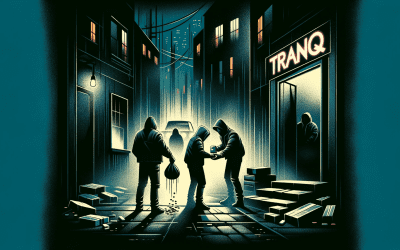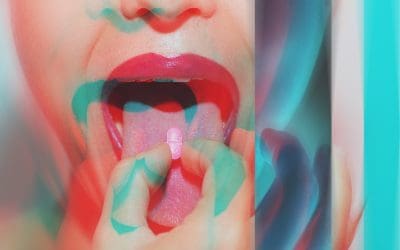For residents of central Florida, therapy can be especially hard to find. This is not due to a lack of mental health facilities in Florida, but rather the sheer volume of providers. This can make it difficult to find the right care for your unique needs, especially if you’re not sure what kind of help you need.
There are several things you should keep in mind when choosing the best psychiatric hospital. These include things like licensing, staff, programs and services, and what types of mental illnesses are being treated. Using all of these criteria together can help you narrow down the best mental health hospital. Here’s what you should keep in mind when looking for treatment centers in central Florida.
Licensed Staff Members
Perhaps one of the most important things you should look for when choosing the best mental health hospital in central Florida is the staff. Finding a hospital with staff members who not only are passionate about their jobs and care about their patients but who are also properly licensed is vital to a successful recovery.
For residents of central Florida, therapy providers are required to be licensed according to state law. This is extremely important to keep in mind when looking for the right mental health hospital. A good, reputable hospital will most often have their licenses displayed on their websites, such as their state certification and other similar licenses.
Some of the most common types of staff found at reputable mental health hospitals in Florida include:
- Clinical Psychologist
- Licensed Professional Counselor
- Clinical Social Worker
- Mental Health Counselor
- Certified Alcohol and Drug Abuse Counselor
- Nurse Psychotherapist
- Psychiatrist
- Psychiatric or Mental Health Nurse Practitioner
All of these positions require specialized training, years of schooling, and state certification to hold their title. When finding the right psychiatric hospital in central Florida, look for these types of staff members to ensure the facility is both state-certified and that the staff is highly skilled.
Understand Your Mental Health Condition

Take your first step towards recovery.
Not all psychiatric hospitals in Florida are created equal. Some specialize in only a small handful of mental health conditions, like schizophrenia or other similar illnesses. Others claim to be able to treat every mental health issue in the book. When looking for the best Florida therapy options, it’s important to take your mental health into account.
There are a wide variety of mental health conditions that affect residents of central Florida. Therapy options for these conditions vary, which is why it’s important to make sure the facility you are looking for can treat your condition.
Some of the most common conditions treated by psychiatric hospitals in Florida include:
- Depression
- Anxiety
- Phobias
- Bipolar disorder
- Obsessive-compulsive disorder
- Anxiety due to COVID-19 (COVID anxiety)
- Schizophrenia
- Schizoaffective disorder
Understanding your mental health care needs is an important step towards finding the best mental health facility in Florida. Therapy for mental health conditions can vary greatly depending on the illness, so it’s important to make sure you will be receiving the right care for your needs.
Find the Right Programs and Services
Another important thing to keep in mind when looking for the best mental health hospital is the type of programs and services being offered. For treatment centers in central Florida, therapy can require very specific programs or services depending on the type of illness. For example, someone who is suffering from depression may benefit greatly from programs like cognitive behavioral therapy (CBT), while someone with schizophrenia may see no results.
When looking for the best psychiatric hospital in central Florida, take a closer look at the programs and services being offered. The following programs and services are offered by some of the top-level mental health hospitals:
- Adult Psychiatric Program
- Dual Diagnosis Program
- Partial Hospitalization Program (PHP)
- Alcohol Addiction Treatment
- Drug Addiction Treatment
- Prescription Drug Addiction Treatment
- Crisis Care Services
- Family Behavioral Health Services
These types of programs and services are specially designed to treat both mental health disorders and addiction. When choosing the best mental health hospital for your needs, make sure that the programs being offered are real, tried-and-true methods that have been proven to work.
Finding Treatment In Central Florida: Therapy at The Blackberry Center

If you’ve been looking for the best mental health hospital in central Florida, then look no further. At the Blackberry Center, located in St. Cloud, Florida, our team of highly-skilled psychiatrists, social workers, therapists, nurses, and addiction specialists are no stranger to mental illness. Our state-of-the-art mental health hospital offers all of the above-mentioned criteria and more.
The Blackberry Center is a state-licensed and Medicare-approved facility, which has been serving the residents of central Florida since 2014. During that time, we have become one of central Florida’s best mental health hospitals. Our staff is highly trained and is dedicated to helping our patients overcome every obstacle in their path.
If you have more questions about treatment centers in central Florida, therapy options, or just want to know more about The Blackberry Center, give us a call today at (813) 908-4199. If you prefer, you can also contact us online using our confidential contact form to get in touch with one of our admissions specialists in a discrete manner. Whichever way you choose, The Blackberry Center in St. Cloud, Florida is here to help.




